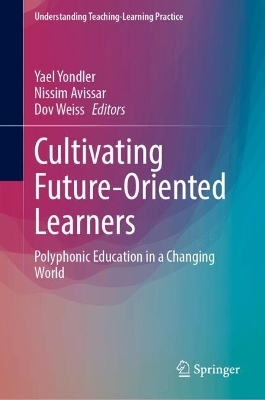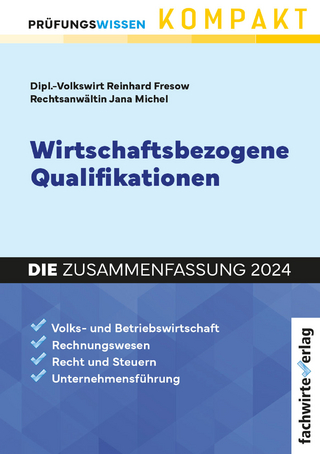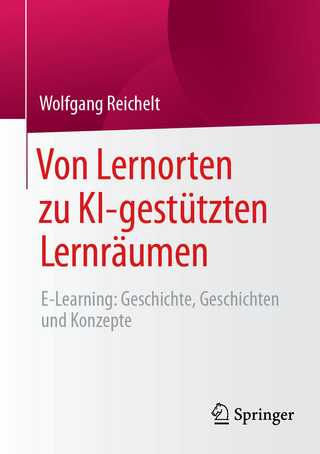
Cultivating Future-Oriented Learners
Springer International Publishing (Verlag)
978-3-031-63252-5 (ISBN)
The book Cultivating Future-Oriented Learners: Polyphonic Education in a Changing World offers a new theoretical and practical educational approach, responding to our era's challenges. The polyphonic paradigm it proposes uses current educational elements to produce "a new whole" connecting technology, varied learning spaces, humanizing pedagogy, and global values of personal, social, and environmental responsibility.
Combining all these elements, the presented polyphonic wisdom model enables teachers to design a technology-enhanced, pluralistic, and dynamic learning environment where individual voices are heard while all the voices harmonize. Centered around human dignity and affinity between the personal and collective good, it aspires to assist educators in cultivating productive and value-based future citizens and teachers within a democratic society.
The book introduces thirteen unique teaching models to foster humanizing global values: diversity and inclusion, ecohumanistic responsibility, and a dialogue between diverse stands and perspectives. It guides learners toward attaining their objectives by acquiring independent learning skills. Together, these teaching models are a catalogue of practical implementation choices of the polyphonic wisdom model in various educational frameworks.
The envisaged readership encompasses educators and related professionals, but no less so anyone concerned about the current educational crisis who wishes to rethink education, technology, and values such as present and future personal, social, and environmental responsibility.
Dr. Yael Yondler is an educator and researcher. She leads the Learning Design path of the Master's program in Technology in Education at Kibbutzim College of Education. An educational assessment specialist, she trains assessment coordinators. She trains and leads academic and other learning teams and communities in knowledge-building and learning design in hybrid spaces. Dr. Yondler's post-doctoral research on digital literacy was conducted at the Learning Technologies and Learning Systems Program of the Open University of Israel.
Dr. Nissim Avissar is a clinical-social psychologist, teacher educator, and qualitative researcher. He heads the teaching-advancement units at Kibbutzim College of Education and trains educators and therapists. His expertise covers cultural sensitivity, social-emotional learning (SEL), resilience building, and coping with trauma and crisis. His current academic research and writings focus on ethnic and class gaps in education and resilience building in a complicated violent reality.
Dr. Dovi Weiss is Head of Digital Learning & Training Development Specialization (B.A) at Ono Academic College. He also consults various organizations on effective and innovative learning, particularly in educational technology. Until 2021, he headed the digital pedagogy unit and management team at Kibbutzim College for 7 years. He was the Pedagogical Founder of Et Hada'at (www.timetoknow.co.il) and its Chief Scientist during 2005-2019. In 2010, Dr. Weiss was declared one of Israel's 50 most influential people in education. In 2012, he received an Honorable Mention from Israel's Prime Minister in the Initiatives and Innovation award Competition for his pioneering work in Educational Technology.
Preface -A Polyphonic Humanizing View of Pedagogy and Technology.- Foreword: Evolving Polyphonic Education in a Teacher Training CollegeConceptual framework
Technology, Values, Pedagogy, and Multiple Learning Spaces:Creating a "New Whole" in a Complex Reality.- Part I- Towards Inclusion: Acknowledging Cultural Differences.- Amazing Race: Collaborative Learning, Gamification, and the Virtual World.- Creating Collaborative Multicultural and Multidimensional Teaching Tasks from Non-Teaching Specific Materials.- Social Media, Embodiment, and Movement to Create a Holistic Teacher Training Experience.- Part II - Ecohumanistic Awareness: Caring for the Glocal Environment.- Exploring Natural Resources through Transformative Sustainability Education.- Sustainability, Literature and Art in Various Spaces: "Between the Trees and the Non-Trees".- Part III- Dialogues in Action: Accepting Others' Perspectives.- Four Mothers in the Face of Four Screens: A Multicultural Debate in the Digital Space.- Experience with a Worthy Public Discussion, Based on the Ideas of Dewey.- Reading and Playing: Promoting Reading of Literature Via a Digital Game.- Part IV: Self-Regulated Learning: Fostering Autonomous Learning Skills.- Learning how to learn' in light of the Universal Design for Learning approach.- The Challenge: How to preserve the human values embedded in a pedagogical course during the transition from the physical environment to the online environment.- Space Education: Training Teachers to Face Challenges in an Era of Uncertainty.- Multiple Intelligences and PBL in the Digital Space Students design and create an applicative product in a collaborative environment.- Active Viewing:
Multiple-Screen Learning in a Future Learning Space.- Epilogue Holding both ends of the stick: humanistic empowerment and technological power in the service of education and learning.
| Erscheinungsdatum | 11.09.2024 |
|---|---|
| Reihe/Serie | Understanding Teaching-Learning Practice |
| Zusatzinfo | XXVII, 237 p. 49 illus., 41 illus. in color. |
| Verlagsort | Cham |
| Sprache | englisch |
| Maße | 155 x 235 mm |
| Themenwelt | Schulbuch / Wörterbuch ► Unterrichtsvorbereitung ► Unterrichts-Handreichungen |
| Mathematik / Informatik ► Informatik | |
| Sozialwissenschaften | |
| Schlagworte | Assessment for Learning (AFL) • Autonomous learning • Dialogue • Diversity • Education for Democracy • Future Learning Spaces (FLS) • humanistic education • hybrid learning • Inclusion • Knowledge Building Community • Learning Design • Online Communication • Polyphonic Education • Self Regulated Learning • sustainability • Teachers Training • Technology in education • tpack • TPeCS |
| ISBN-10 | 3-031-63252-4 / 3031632524 |
| ISBN-13 | 978-3-031-63252-5 / 9783031632525 |
| Zustand | Neuware |
| Haben Sie eine Frage zum Produkt? |
aus dem Bereich


